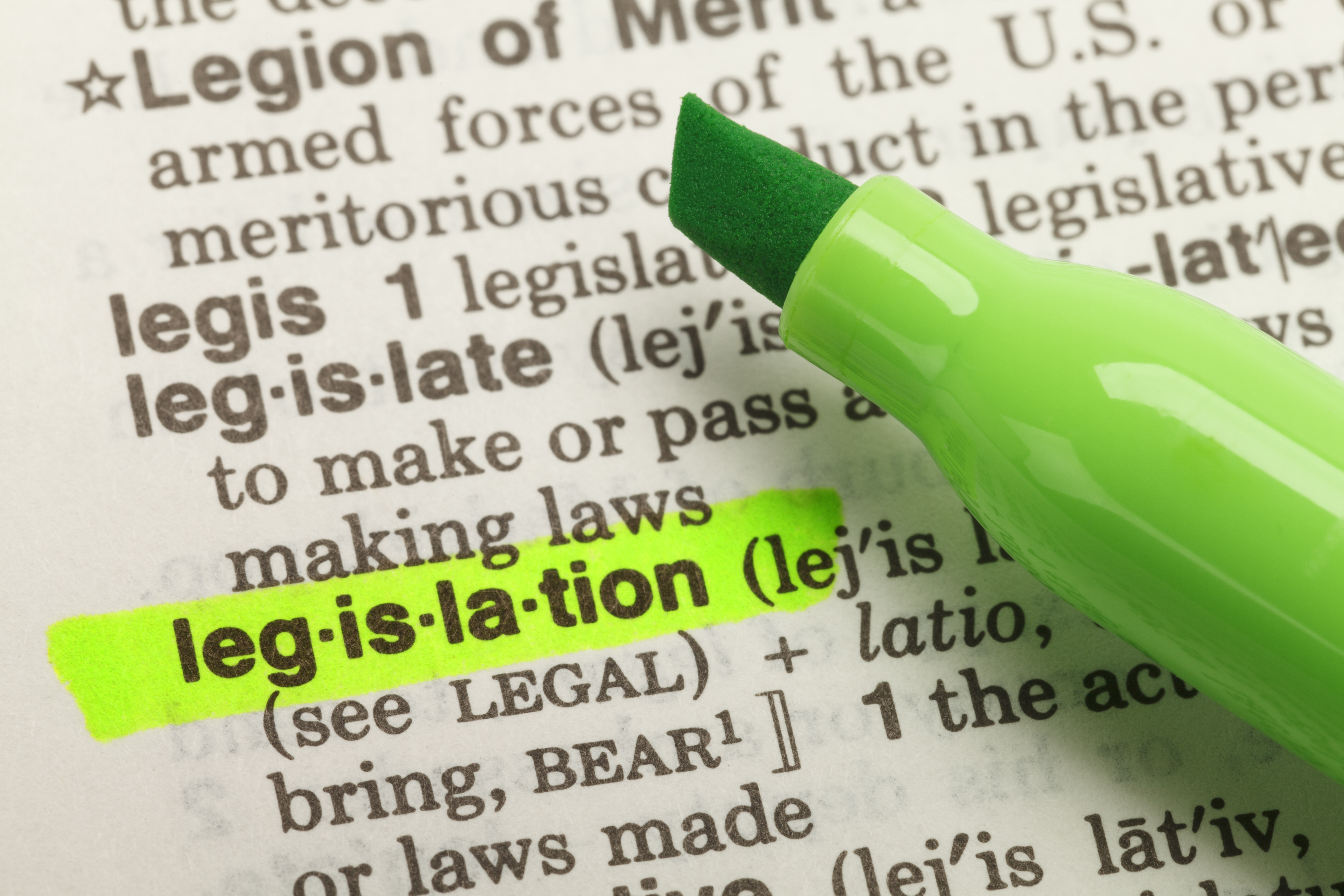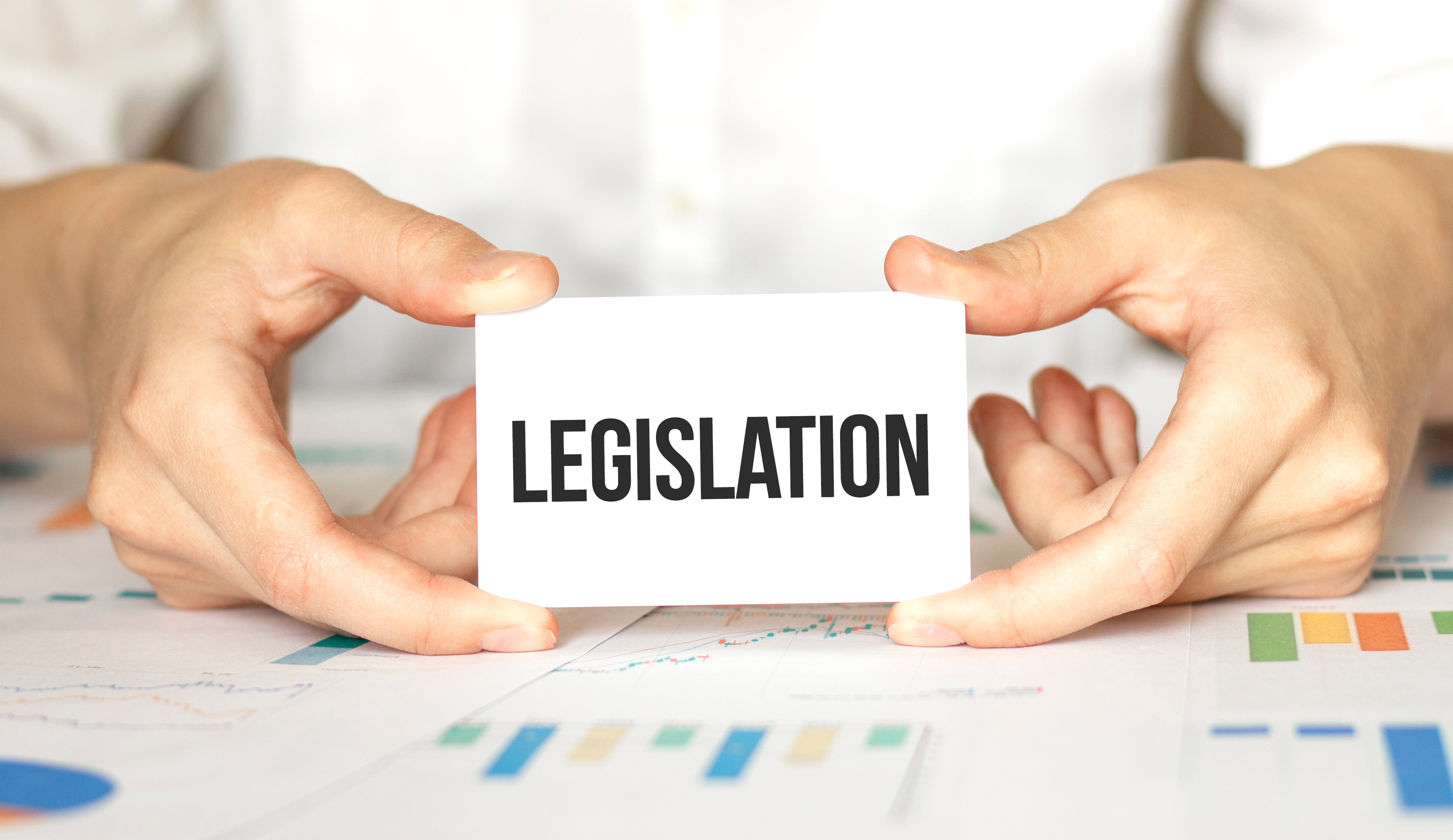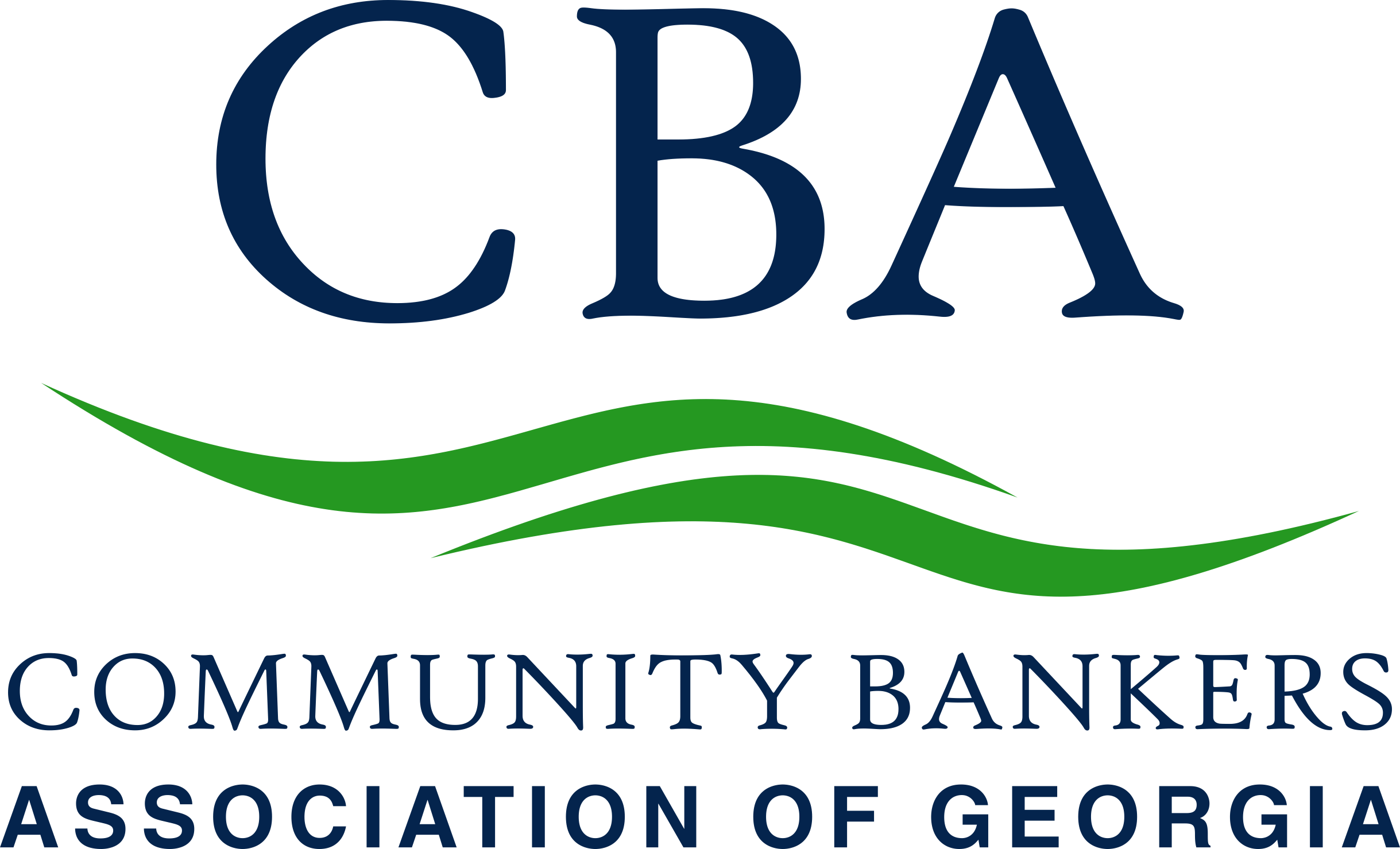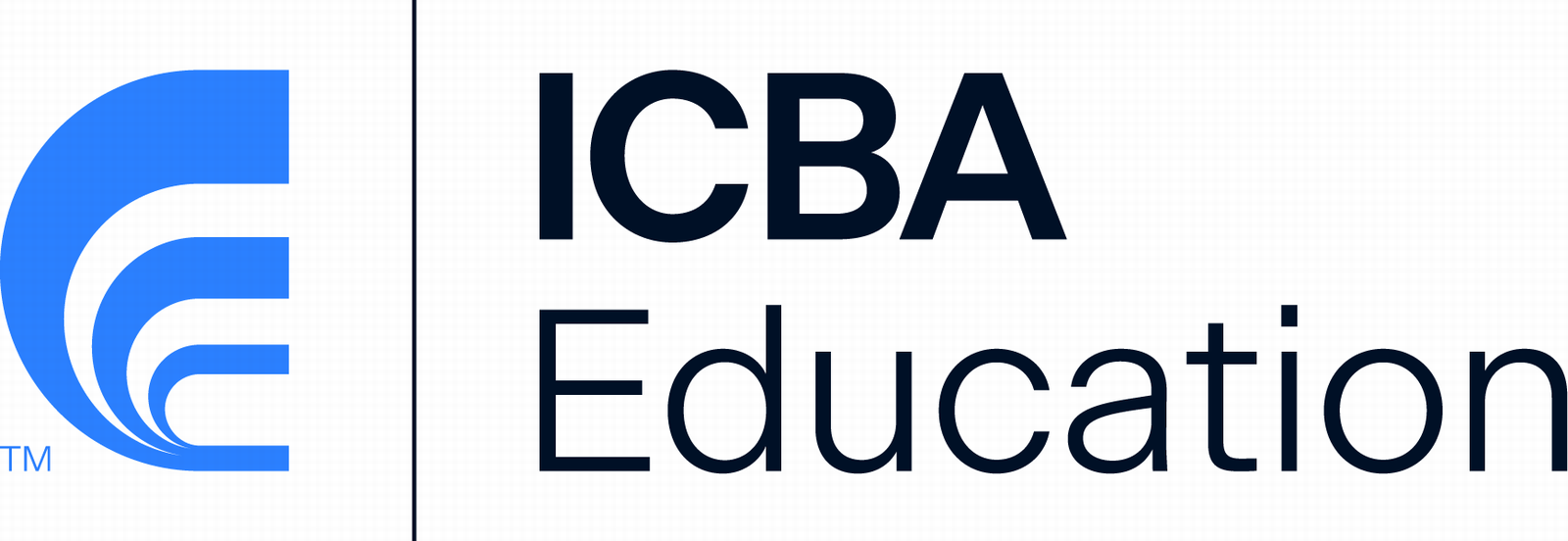Advocacy Update 2024 - Legislative Days 36-38
Mischief and Mayhem
 With the 2024 edition of the Georgia General Assembly nearing an end, activity under the Gold Dome is busier than ever. The legislature worked well into the evening each day this week; the Senate Judiciary Committee considered bills until midnight on Wednesday. As is always the case this time of year, several legislators saw their bills hi-jacked, gutted, and loaded with new language to resurrect otherwise lifeless legislation before the clock runs out.
With the 2024 edition of the Georgia General Assembly nearing an end, activity under the Gold Dome is busier than ever. The legislature worked well into the evening each day this week; the Senate Judiciary Committee considered bills until midnight on Wednesday. As is always the case this time of year, several legislators saw their bills hi-jacked, gutted, and loaded with new language to resurrect otherwise lifeless legislation before the clock runs out.
Your Government Affairs Team works especially diligently during this period to manage the mischief. In some instances, the chaos creates an opportunity to advance an item where none existed before. More often, however, previously defeated language resurfaces and must be tamped down again.
Next week, lawmakers will meet Tuesday for day 39 and Thursday for day 40, the last day of session. The mischief and mayhem are sure to persist until the last bell of the 2024 session rings at midnight on March 28.
Down to the Wire
 Remote Online Notary (SB 425)
Remote Online Notary (SB 425)
Sen. Blake Tillery, R—Vidalia
Bill sent back from House Rules to House Judiciary Committee on Mar 19th
The bill provides for the modernization of certain legal, notarial, and court services by electronic means. It allows an attorney to conduct a real estate closing for property in this state using electronic means under certain conditions. Attorneys in the financial institutions sector are currently reviewing the bill to determine if there are any major concerns with it as introduced.
One change for some financial institutions is the requirement that any real estate loan must be closed by an attorney. Some institutions have done HELOC and refinance closings at the institution with no attorney present. If passed, the bill will require a change in procedures for these types of closings.
The Remote Online Notary bill last was debated as HB 334 in 2022. At that time, Sen. Blake Tillery opposed the legislation and SB 425 is his attempt at perfecting it. Conceptually, CBA supports the use of a Remote Online Notary and remains hopeful that the parties can reach an agreement.
Changes were made to the bill relating to commercial real estate closings and ensuring that these closings were not part of the bill. The bill is only intended to cover 1-4 residential properties.
CBA understands that revisions to the bill will be made and presented to the House Judiciary Committee on Mar 25th. Revisions are likely to shift the bill to more of an In Person Electronic Notarization (IPEN) as opposed to a true remote notary. CBA plans to be part of these conversations.
Study Committee on Credit Card Fees (HR 1135)
Rep. Todd Jones, R—South Forsyth
Resolution approved by the Agriculture and Consumer Affairs Committee on Mar 12th
The Resolution creates a House Study Committee on Credit Card Fees on State Sales and Excise Tax and their impact on Georgia merchants and consumers. The resolution outlines who the ten members of the committee would include:
- Four members of the House of Representatives, including the Chairman of the House Banks & Banking Committee and the Chairman of the Technology and Infrastructure Innovation
- Six nonlegislative members:
- One retail payments expert from a motor fuel or general retailer
- One banking industry expert
- One consumer member or consumer advocate
- One payment-processing expert from a processing company
- One restaurant owner-operator or representative from the restaurant industry, and
- One small business owner or operator or a small business representative
The study would explore various subjects, including the purpose and breakdown of credit card swipe fees, the role of merchants in addressing fraudulent transactions, the volume of fraud liability imposed upon merchants through chargebacks, the impact of swipe fees on low-income consumers, the anti-competitive nature of payment card marketplace, and the ability of merchants to communicate tax amounts based on information already provided as part of the transaction.
CBA and other members of the financial services section testified on this Resolution during the Committee meeting. CBA stands firm in its position that a solution should be sought at a federal level and not at the state level.
Active Measures: Banking
 Regulate Earned Wage Access Providers (HB 84)
Regulate Earned Wage Access Providers (HB 84)
Rep. Trey Rhodes, R—Greensboro
Bill approved by the Senate Banking & Financial Institutions Committee on Mar 19th
As introduced last year, HB 84 created a new code section to license commercial financing transactions. After similar legislation (SB 90) was enacted in 2023, HB 84 spend nearly the entire 2024 session pending in the Senate Banking and Financial Institutions Committee.
On Mar-19, the bill was stripped and language from SB 254 was inserted. The bill now provides requirements for earned wage access services and clarifies that earned wage access payments are nonrecourse and are not loans.
Central Bank Digital Currency (HB 1053)*
Rep. Carter Barrett, R—Cumming
Senate passed the bill with a vote of 38-11 on Mar 21st
The bill prohibits governmental agencies from using central bank digital currency as payment and from participating in testing the use of such currency.
Active Measures: General Business
 Uniform Commercial Code Modernization Act of 2024 (HB 1240)*
Uniform Commercial Code Modernization Act of 2024 (HB 1240)*
Rep. Matt Reeves, R—Duluth
Senate passed the bill with a vote of 52-1 on Mar 21st
The bill updates and modernizes various statutes in the commercial code relating to commercial transactions to maintain uniformity in in Georgia law governing commercial transactions as recommended by the National Conference of Commissioners on Uniform State Laws. It establishes commercial law for transactions involving digital assets, adds a new article pertaining to electronic records, and adds a new article pertaining to transitional provisions.
Notarial Acts Performed in Another State (HB 1075)
Rep. Scott Hilton, R—Peachtree Corners
Bill approved by the Senate Judiciary Committee on Mar 20th
The bill provides that state agencies shall accept certain notarial acts performed in another states; provides that a notarial act may be exercised in any county in this state.
Georgia Higher Education Assistance Corporation (HB 985)*
Rep. Chuck Martin, R-Alpharetta
House agreed with the Senate Amendment with a vote of 154-0 on Mar 21st
The bill abolishes the Georgia Higher Education Assistance Corporation.
Small Business Protection Act (SB 429)
Sen. Greg Dolezal, R—Cumming
Bill approved by the House Budget & Fiscal Affairs Committee on Mar 21st
This bill provides for the preparation and submission of small business impact analyses for bills introduced during sessions of the General Assembly. This bill is the centerpiece of the Lieutenant Governor’s red-tape reduction agenda. The small business impact analysis would be similar to a fiscal note the General Assembly is required to produce for tax bills describing the cost to the state. Proposed agency rulemaking would be required to include an economic analysis and the impact on small businesses. During committee, the regulatory piece was stripped from the bill.
College Success 529 Expansion Act (SB 469)
Sen. Jason Esteves, D—Atlanta
House passed the bill with a vote of 155-0 on Mar 21st
The bill increases the maximum amount of contributions allowed to the GA Higher Education Savings Plan per beneficiary of savings trust accounts for higher education expenses.
[PROPERTY]
Possessory Interest in Certain Land by Foreign Persons (SB 420)
Sen. Jason Anavitarte, R—Dallas
House passed the bill with a vote of 97-67 on Mar 21st
The underlying language of SB 420 prohibits agents associated with foreign adversaries from owning agricultural land or land near military installations. The House Rules Committee added language from HB 1247 after it failed to advance in the Senate. This provides for transfer-on-death deeds and stipulates how to execution and recording of such deeds, which cannot be revoked by wills.
Photo ID for Deed Filings (HB 1292)
Rep. Gabe Okoye, D—Lawrenceville
Bill approved by the Senate Judiciary Committee on Mar 18th
The bill requires the clerks of the superior court to obtain a photo ID for individuals who present deeds or other instruments for recording in an effort to reduce fraudulently recorded deeds. CBA worked with the author to exempt federally insured financial institutions and credit unions and their affiliates.
The Senate Judiciary Committee further amended it to include language from SB 474. It addresses the issue of unsolicited residential purchase offers, especially related to elder and vulnerable homeowners. It requires the purchase offer to clearly disclose that the offer among may or may not be the fair market value of the property; it renders certain contracts accompanying unsolicited offers from unlicensed individuals void. CBA worked with the author to ensure the definition of “financial institutions” includes both state and federally chartered institutions.
[JUDICIAL]
Torts Regarding Third-Party Criminal Activity (HB 1371)
Rep. James Burchett, R—Waycross
Bill was approved by the Senate Judiciary Committee on Mar 20th
The bill clarifies the liability regarding third-party criminal activity. The Senate Judiciary Committee considered a substitute version on Mar-20. The Committee debated, amended, and heard testimony on the measure for two hours, arriving at a do-pass recommendation at 11:30pm. At this point of the legislative session, landowners and the business community oppose the watered-down current version of HB 1371. Proponents are expected to work with the Governor’s Office and legislative allies to advance stronger premises liability reforms in the 2025 session.
[TECHNOLOGY]
Georgia Consumer Privacy Protection Act (SB 473)
Sen. John Albers, R—Roswell
Bill approved by the House Technology, Infrastructure and Innovation Committee on Mar 20th
SB 473 protects the privacy of consumer personal data, defined as information that is linked or reasonably linkable to an identified or identifiable individual. It allows a consumer to invoke these rights, including correcting inaccuracies, deleting personal information, obtaining a copy of their personal information, opting out of the processing of their personal information, etc. The controller of personal data is obligated to limit the collection of such information to what is adequate, relevant, and reasonably necessary.
A broad coalition of business interests lined up against the bill after it was heavily amended prior to passage in the Senate in late February. Changes made in the House alleviate concerns for many businesses and trade associations but the overall reception remains lukewarm.
The House Technology and Infrastructure Innovation Committee thoroughly considered SB 473, holding two hearings, and allowing for robust public testimony and amendments. Despite this, just hours after the bill received a do-pass recommendation, Sen. Albers stripped an unrelated measure (HB 498) and inserted data privacy provisions into that bill as well. Both items remain active and eligible for the home stretch.
AI Usage by State Agencies (HB 988)
Rep. Brad Thomas, R—Holly Springs
Bill approved by the Senate Science and Technology Committee on Mar 20th
HB 988 requires the Georgia Technology Authority to conduct an annual inventory of all systems that employ artificial intelligence and are in use by a state agency. This would apply to the Department of Banking and Finance. The bill defines AI as a “machine-based system that can, for a given set of human-defined objectives, make predictions, recommendations, or decisions influencing real or virtual environments…”
[TAXATION]
Increase Statewide Ad Valorem Exemption for Tangible Personal Property (HB 808)
Rep. Mike Cheokas, R--Americus
Senate voted on the bill and it failed with a vote of 33-18 on Mar 20th. Sen. John Albers gave a notice of motion to reconsider the bill in the Senate.
The bill increases a statewide ad valorem tax exemption for tangible personal property. The exemption would increase from $7,500 to $50,000 in a tiered manner over several years. A substitute bill was presented capping the exemption at $20,000 instead of $50,000 over several years.
Reduce the Income Tax Rate (HB 1015)*
Rep. Lauren McDonald, R—Cumming
Bill passed by Senate with a vote of 40-12 on Mar 20th
HB 1015 reduces the rate of state income tax from 5.49% to 5.39%. This is one of the priorities of the Governor. Separately, HB 1023 clarifies that the tax rate imposed on corporations tracks with the rate set for individuals; it is also eligible for enacted by the Governor.
New Legislation: Banking Related
 While crossover day has come and gone and the likelihood of any new bills moving forward is not likely, CBA will monitor the bills outlined below to see if any movement occurs.
While crossover day has come and gone and the likelihood of any new bills moving forward is not likely, CBA will monitor the bills outlined below to see if any movement occurs.
Limit Amount of Surcharges Charged by Merchants (HB 1505)
Rep. Terry Cummings, D—Mableton
Bill assigned to the House Banks & Banking Committee on Mar 21st
The bill prohibits the use of purchaser’s credit card information by a merchant and limits the amount of surcharges merchants can pass along to purchasers for the use of credit cards.
Senate Peach State Saves Program Study Committee (SR 807)
Sen. Chuck Hufstetler, R—Rome
Resolution assigned to the Senate Rules Committee on Mar 20th
The resolution creates the Peach Save plan and provides for membership and eligibility requirements. The resolution creates an option for small businesses that do not offer 401-K plans to participate in this program. See also Peach Save Plan (SB 477).


